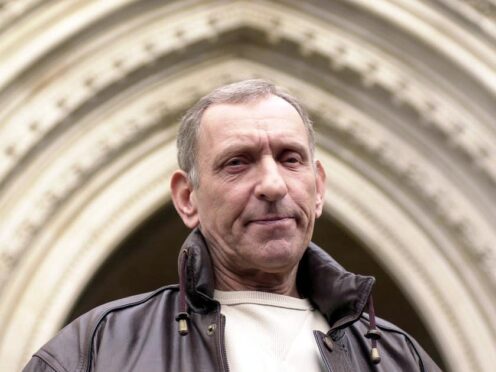
The criminal review body is relying on “inaccurate” rulings in rejecting the appeals of a man convicted of murder more than 50 years ago, MPs have heard.
Paul Cleeland, 81, served 26 years in prison for the murder of Terry Clarke in 1972.
Mr Cleeland has always argued that he was not guilty of the shooting of Mr Clarke, but was jailed for life in 1973 and his first appeal was dismissed in 1976.
When his pleas for a referral back to the Court of Appeal were refused in 1998, Mr Cleeland successfully challenged the decision in the High Court but in 2002 the appeal was again dismissed.
He applied to the Criminal Cases Review Commission (CCRC) again to refer his case to the Court of Appeal in 2008, but this too was rejected.
Conservative MP Damian Collins (Folkestone and Hythe) raised Mr Cleeland’s case in a Westminster hall debate, saying that “after 26 years (Mr Cleeland) still refused to admit any liability for the offence and has continued to fight to clear his name”.
He told MPs: “The case of Mr Cleeland is regarded by many as a miscarriage of justice, one of a series of miscarriages of justice which we are familiar with, certainly from the 1970s, but one that has remained outstanding.”
Mr Collins raised a number of evidential issues in the case, including motive, forensic evidence and eye-witness testimony, which he argued warranted Mr Cleeland’s appeal being heard.
He said: “The forensic expert called to give evidence to the Court of Appeal discredited a lot of the evidence presented by Mr (John) McCafferty… who presented the evidence against Mr Cleeland in the original trial.”
He added: “What was clear coming out of the Court of Appeal hearing, despite what was necessarily said in the summing up from it, was that there was no forensic link between the gun and the murder and Mr Cleeland.”

Mr Collins further argued that the flawed evidence presented in court was the basis on which the CCRC was refusing Mr Cleeland’s appeals.
He said: “The CCRC and these courts and these judges have consistently relied on statements that are just not true, that have been demonstrated in court to be not true.”
He added: “Mr Cleeland is now in the position of having been accused of being a vexatious litigant simply because he is seeking to correct the record, to have the CCRC clearly state these facts, not rely on previous rulings which are not true, which are inaccurate, and that the record should be corrected.
“That the CCRC should acknowledge the complaints that have been made, and consider also the judgements that have been made by other judges that have relied on evidence provided by the CCRC which continues to reassert these points.
“When we look at the case in particular, it’s hard now to know how the jury would have reacted in the 1970s when they considered Mr Cleeland’s case, particularly because almost every principle area of evidence presented by the Crown has subsequently proven to be flawed.”
Mr Collins further stated: “There is a very substantial amount of evidence now which challenges what has gone before.
“The CCRC continues to reject this and in many ways, present evidence that does not bear the facts, and these seem to be the reasons why the CCRC will not refer the case on.”

Mr Collins finally called for “an acknowledgement of these mistakes, that the record gets put right and therefore that fresh consideration be given by the CCRC to Mr Cleeland’s case in the light of these facts having been corrected and amends having been made.”
Responding to Mr Collins, justice minister Laura Farris said miscarriages of justice have “unbelievable consequences for everybody involved.”
She said: “Since its inception in 1997, the CCRC has referred 836 cases, roughly one every eight working days, with 571 of those resulting in a quashed conviction.”
Ms Farris acknowledged that the Commission had been receiving criticism but highlighted that its decisions are “independent of Government”.
She said: “The CCRC has attracted particular scrutiny over its handling of some recent cases where its decision-making has been questioned and challenged, and the way it has responded to new evidence.
“Whilst my department works closely with the CCRC to monitor its performance, its decisions are independent of the Government.”
Ms Farris said Mr Cleeland “is entitled to apply again through a lawyer if fresh evidence of information has emerged”.
She added that she would raise the issue with the Lord Chancellor and stated she was “confident that the CCRC adopt a professional, impartial and objective approach in deciding whether or not the relevant test has been met in each case”.

Enjoy the convenience of having The Sunday Post delivered as a digital ePaper straight to your smartphone, tablet or computer.
Subscribe for only £5.49 a month and enjoy all the benefits of the printed paper as a digital replica.
Subscribe